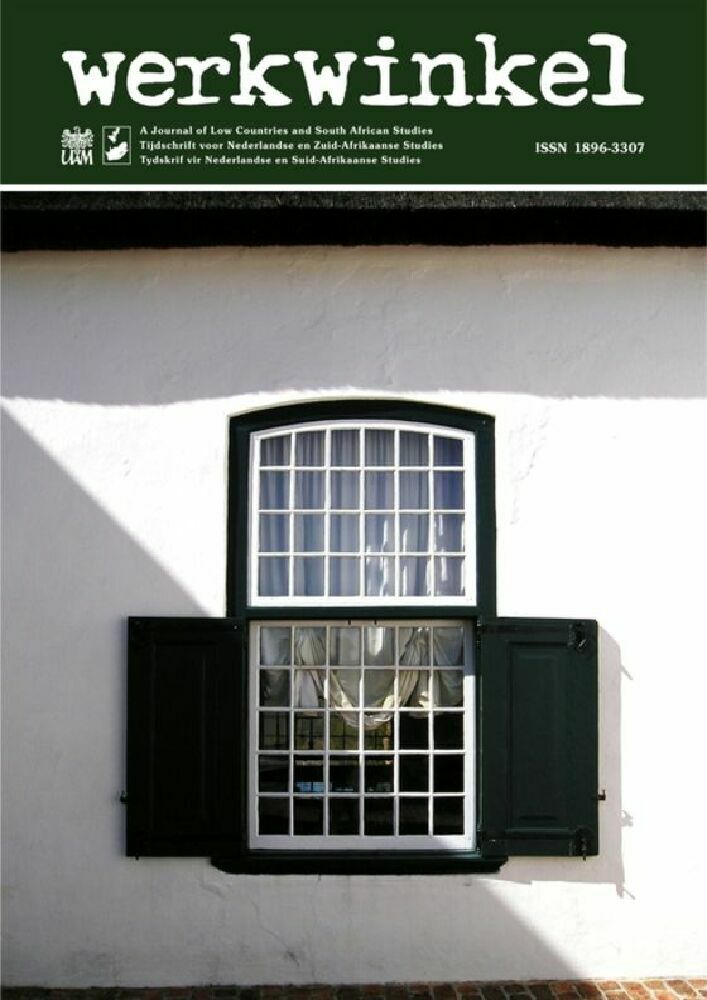Abstract
In this ongoing research we are going to have a look at the starting point for the burgeoning national feelings with two smaller nations: the Slovak and the Flemish national movement. Building on the methodological framework of nationalism researcher Miroslav Hroch, one can discern a threefold stage – model in the national movements of the smaller nations in Europe, which is a thesis still needing more empirical evidence. This article attempts to compare at least one aspect of early nineteenth-century nation – building: How were the literary societies functioning in both national movements? We are working in a time scope of the fi rst half of the 19th century and ask ourselves the questions: until which extend reached literary societies? What was their impact? Which people were their readers, their public? Was their language, and their language-spreading aim representative for the whole nation? What similarities and differences can be found in Flanders and Slovakia in this field?
References
Bemong, Nele, Mary Kemperink, Marita Mathijsen, en Ton Sintobin, eds. 2010. Naties in een spanningsveld: Tegenstrijdige bewegingen in de identiteitsvorming in negentiende-eeuws Vlaanderen en Nederland. Hilversum: Verloren.
Berg, W. van den. 1984. “Sociabiliteit, genootschappelijkheid en de orale cultus.” Historische letterkunde: Facetten van vakbeoefening. Ed. Marijke Spies. Groningen: Wolters- Noordhoff. 151-170.
Beyen, Marnix. 2005. “Een uitdijend verhaal: De historiografi e van de Vlaamse beweging, 1995-2005.” Wetenschappelijke tijdingen 44: 18-35.
Boeva, Luc. 2009. Rien de plus international: Naar een comparatieve en transnationale historiografi e van nationale bewegingen. Antwerpen: ADVN.
Bossaert, Benjamin. 2012. “Mijn vlakke land versus Over de Tatra bliksemt het: Hoog- en Laagland in een comparatieve studie”. Lage Landen, Hoge Heuvels. Eds Jelica Novaković- -Lopušina et.al. Belgrade: ARIUS. 415-424.
Couttenier, Piet. 1998. “Literatuur en de Vlaamse Beweging.” Nieuwe Encyclopedie van de Vlaamse Beweging. Eds Reginald de Schryver, en Bruno de Wever. Tielt: Lannoo. 1939- -1950.
Deprez, Ada. 1998a. “Maetschappy tot bevordering der Nederduitsche tael- en letterkunde.” Nieuwe Encyclopedie van de Vlaamse Beweging. Eds Reginald de Schryver, en Bruno de Wever. Tielt: Lannoo. 1989-90.
Deprez, Ada. 1998.b “De Tael is gansch het volk.” Nieuwe Encyclopedie van de Vlaamse Beweging. Eds Reginald de Schryver, en Bruno de Wever. Tielt: Lannoo. 3046.
Draye, Greet. 2009. Laboratoria van de natie: Literaire genootschappen in Vlaanderen 1830-1914. Nijmegen: Vantilt.
Gevers, Lieve. 1998. “Geschiedenis van de Vlaamse Beweging.” Nieuwe Encyclopedie van de Vlaamse Beweging. Eds Reginald de Schryver, en Bruno de Wever. Tielt: Lannoo. 35-55.
Goddeeris, Idesbald. 2005. “Het geopolitieke paradigma: Nationalisme-onderzoek in Oost-Europa (Polen, Sovjet-unie, Litouwen, Wit-Rusland en Oekraine).” Wetenschappelijke tijdingen 44: 135-148.
Hroch, Miroslav. 1996. In the National Interest: Demands and Goals of European National Movements of the Nineteenth Century: A Comparative Perspective. Prague: Charles University.
Hroch, Miroslav. 2005. Das Europa der Nationen: Die moderne nationsbildung im europaischen Vergleich. Gottingen: Vandenhoeck & Ruprecht.
Ivantyšynová, Tatjana. 2006. Ján Kollár a slovanská vzájomnosť: Genéza nacionalizmu v strednej európe. Bratislava: Stimulus
Kowalská, Ewa. 2012. “Prvé meštianské kasíno – neznáma kapitola z novšich dejín Modry a procesu “národného prebúdzania.” Nové kontexty života a diela Ľudovíta Štúra. Ed. Beáta Mihalkovičová. Modra: Modranská muzeálna spoločnosť. 154-165.
Mannová, Elena. 2006. “Spolky a národná emancipácia Slovákov.” Ján Kollár a slovanská vzájomnosť: Genéza nacionalizmu v strednej Európe. Ed. Tatjana Ivantyšynová. Bratislava: Stimulus. 73-85.
Mihalkovičová, Beáta. 2012. Nové kontexty života a diela Ľudovíta Štúra. Modra: Modranská muzeálna spoločnosť.
Rock, Jan. 2012. Literary and Philological Societies of the Low Countries: Questions of Political Centralization and Artistic and Scholarly Autonomy (1766-1886). n.p. n.p. n.pag.
Schryver, Reginald de, en Bruno de Wever, eds. 1998. Nieuwe Encyclopedie van de Vlaamse Beweging. Tielt: Lannoo.
Willekens, Emiel, en Sam van Clemen. 1998. “De Olijftak.” Nieuwe Encyclopedie van de Vlaamse Beweging. Eds Reginald de Schryver, en Bruno de Wever. Tielt: Lannoo. 2225-6.
License
Copyright (c) 2015 Benjamin Bossaert

This work is licensed under a Creative Commons Attribution-NonCommercial-NoDerivatives 3.0 Unported License.

